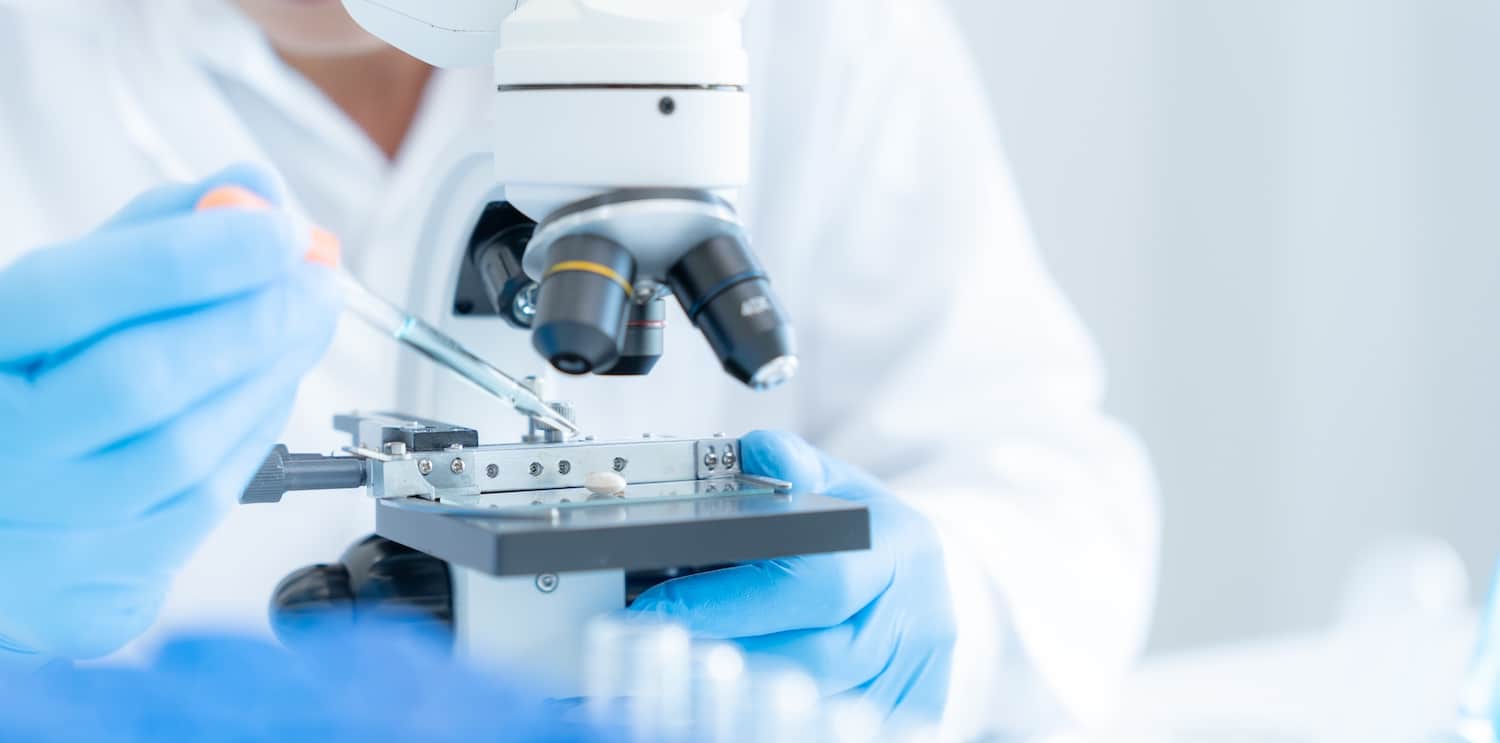Understanding the Role of CHEK2: Insights into Cancer and Beyond

Cells are the fundamental building blocks of all living organisms, continuously undergoing a process called the cell cycle. This essential process allows cells to grow and divide, ensuring the maintenance and repair of tissues throughout the body. The proper regulation of cell cycle progression is crucial for preventing the development of abnormal cells.
When DNA within a cell becomes altered, it can disrupt normal cellular functions, potentially leading to cancer. These altered cells, if not corrected, may continue to proliferate through the cell cycle, leading to an accumulation of abnormal (tumor) cells.
Fortunately, the body has mechanisms to repair damaged cells and prevent the propagation of altered DNA. One of these key mechanisms involves a gene known as CHEK2, which plays a crucial role in DNA repair and cell cycle regulation. This gene can block cell cycle progression when necessary, preventing damaged cells from dividing. However, when the CHEK2 gene itself is mutated, it can increase the risk of certain cancers, including breast cancer and even male breast cancer.
This guide will delve into the role of CHEK2 in cancer risk, emphasizing the importance of both somatic and germline testing to provide a comprehensive understanding of how this gene can influence cancer development and treatment strategies.
What is CHEK2?
The CHEK2 gene is a vital component of the cell cycle regulation process. It encodes a protein that acts as a tumor suppressor by promoting the repair of damaged DNA. This gene functions as a checkpoint within the cell cycle, ensuring that cells with damaged DNA do not proceed to division until repairs are made.
When the CHEK2 gene detects DNA damage, it blocks cell cycle progression (an outcome called cell cycle arrest), halting the process to allow for DNA repair. If a mutation occurs in the CHEK2 gene, its ability to manage this process is compromised, potentially allowing damaged DNA to be copied and passed on, which can lead to the development of cancer cells.
Importantly, CHEK2 mutations can be inherited, meaning that they can be passed down from parent to child. These inherited mutations make it crucial to understand the personal and family history of cancer when assessing cancer risk.
CHEK2 Gene Variants and Cancer Risk
A variant in the CHEK2 gene means that the gene may not function properly, which can increase the risk of developing certain cancers. However, having a CHEK2 variant does not guarantee cancer development—it simply elevates the risk.
Key Points to Consider:
- Somatic vs. Germline Mutations: Mutations in the CHEK2 gene can be either somatic (acquired) or germline (inherited). Somatic mutations occur in specific cells and are not passed on to offspring, while germline mutations are present in every cell of the body and can be inherited.
- Cancer Risk: The specific cancer risk associated with a CHEK2 variant depends on the type of mutation and the part of the gene affected. Not all individuals with a CHEK2 variant will develop cancer, and even within families, the cancer risk may vary.
CHEK2 and Cancer Types
The CHEK2 gene is more closely associated with certain types of cancer. If you have a CHEK2 gene variant, it’s important to discuss your genetic testing results and personal and family history with your healthcare provider to understand your specific risks.
Breast Cancer
CHEK2 variants are most commonly linked to developing breast cancer. Women with a CHEK2 mutation have an elevated breast cancer risk, estimated at 20-40% over their lifetime, compared to a 12.5% risk in the general population. In addition, men with a CHEK2 mutation may also have an increased risk of developing male breast cancer.
For women with a CHEK2 variant who have already been diagnosed with breast cancer, there is a 6-8% chance of a second diagnosis within 10 years if they have not undergone a mastectomy.
Colorectal Cancer
People with a CHEK2 gene variant may also have a slightly increased risk of developing colorectal cancer. Initial studies suggest a 5-10% lifetime risk compared to the 4% risk seen in the general population.
Prostate Cancer
Research into the link between CHEK2 variants and prostate cancer is ongoing. While some studies have shown an association between CHEK2 germline mutations and an increased risk of prostate cancer, this connection is not yet definitive.
The Importance of Comprehensive Genomic Testing
Understanding your CHEK2 status is crucial, but it’s only one piece of the puzzle. Comprehensive genomic testing, which includes both somatic and germline analysis, provides a more complete picture of your cancer risk and can inform treatment decisions.
Why Comprehensive Testing Matters:
- Dual Insight: Somatic-only tests may miss germline mutations, which are crucial for understanding inherited mutations and hereditary cancer risks. A combined somatic and germline test, like CancerVision, offers a more comprehensive view of genetic alterations, potentially improving the precision of the analysis.
- Personalized Treatment: Knowing both somatic and germline mutations can help guide treatment options, including eligibility for targeted therapies and clinical trials.
Genetic Testing for CHEK2: What You Need to Know
Not everyone needs to be tested for CHEK2 variants. However, genetic testing may be advisable if you have:
- A personal or family history of breast cancer.
- A blood relative with a known CHEK2 variant.
- A family history of cancers associated with CHEK2 mutations.
CancerVision: Your Partner in Comprehensive Cancer Profiling
CancerVision offers a unique approach to cancer profiling by combining both somatic and germline testing. This whole genome test provides a thorough analysis of your cancer’s genetic landscape, helping you and your healthcare team make informed decisions about your treatment and management.
Key Benefits:
- Cancer Risk Management: Identify potential genetic risk factors, including inherited mutations, that could influence your cancer treatment and monitoring strategies.
- Enhanced Treatment Planning: Receive personalized treatment recommendations based on the specific genetic mutations found in your tumor.
- Access to Additional Treatment Options: Genomic insights can qualify you for clinical trials or therapies tailored to your genetic profile.
Taking Control of Your Health
While genetics play a significant role in cancer development, your actions can also impact your cancer risk. Staying informed, undergoing regular screenings, and making healthy lifestyle choices are all critical steps in managing your health.
CancerVision can help you understand your unique genetic profile, offering insights that go beyond traditional testing. If you have a strong personal and family history of cancer, consider speaking with your healthcare provider about whether CancerVision is right for you.
Take control of your cancer journey with CancerVision—because understanding your genes is the first step toward empowered health decisions. Get started today.
References
- “About Mutations in the CHEK2 Gene.” Memorial Sloan Kettering Cancer Center, www.mskcc.org/cancer-care/patient-education/about-mutations-chek2-gene.
- Boonen RACM, Vreeswijk MPG, van Attikum H. CHEK2 variants: linking functional impact to cancer risk. Trends Cancer. 2022 Sep;8(9):759-770. doi: 10.1016/j.trecan.2022.04.009. Epub 2022 May 25. PMID: 35643632.
- “Cancer Risks in People With a CHEK2 Mutation.” Cancer Risks in People With a CHEK2 Mutation,
www.facingourrisk.org/info/hereditary-cancer-and-genetic-testing/hereditary-cancer-genes-and-ris k/genes-by-name/chek2/cancer-risk. - Cybulski C. et al. CHEK2 is a multiorgan cancer susceptibility gene. Am J Hum Genet. 2004 Dec;75(6):1131-5. doi: 10.1086/426403. Epub 2004 Oct 18. PMID: 15492928; PMCID: PMC1182149.


